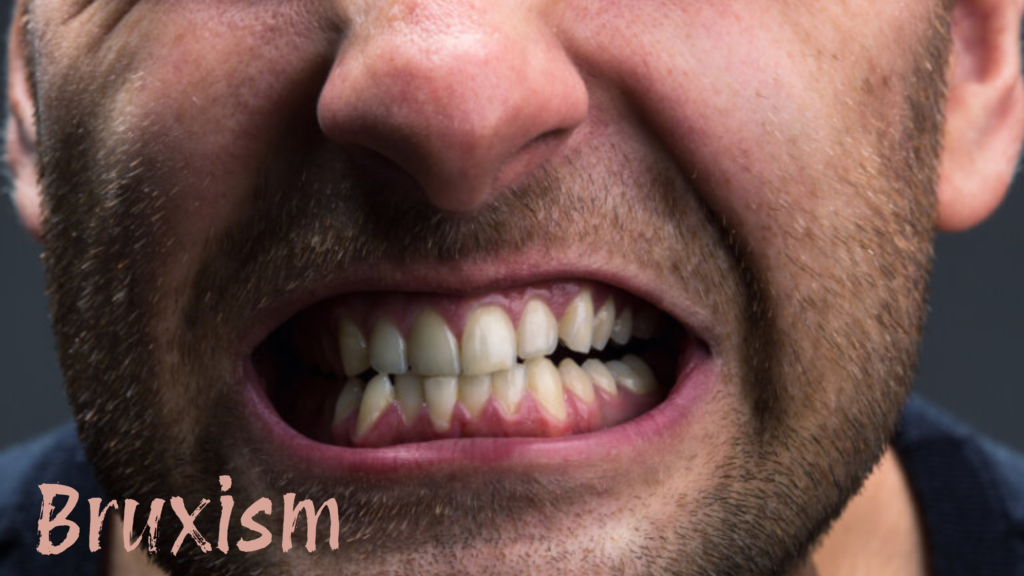Bruxism, commonly known as teeth grinding, is a condition where individuals grind, gnash, or clench their teeth, often unconsciously. It can occur during sleep (sleep bruxism) or while awake (awake bruxism) and may lead to various dental and health issues if not addressed.
🦷 Visual Representation of Bruxism
Image Source: Cleveland Clinic
🔍 Symptoms of Bruxism
- Dental Issues: Flattened, fractured, or chipped teeth; worn tooth enamel exposing deeper layers.
- Jaw Discomfort: Tired or tight jaw muscles; jaw pain or soreness.
- Headaches: Dull headaches starting at the temples.
- Earaches: Pain that feels like an earache, though it’s not related to the ear.
- Sleep Disturbances: Sleep problems due to discomfort.(mayoclinic.org)
🧠 Causes and Risk Factors
- Stress and Anxiety: Emotional stress and anxiety are significant contributors to bruxism.
- Sleep Disorders: Conditions like sleep apnea can increase the risk.
- Medications: Certain medications, including some antidepressants, can lead to bruxism.
- Lifestyle Factors: High caffeine, alcohol, or tobacco use.
- Dental Issues: Misaligned teeth or bite problems.(verywellmind.com, mayoclinic.org)
🛠️ Treatment Options
🦷 Dental Interventions
- Mouthguards/Nightguards: Custom-fitted devices worn during sleep to protect teeth from grinding.
- Dental Correction: Reshaping teeth or using crowns to repair damage.(mayoclinic.org)
🧠 Therapeutic Approaches
- Stress Management: Techniques such as meditation, yoga, and exercise to reduce stress levels.
- Behavioral Therapy: Learning to change habits and reduce clenching or grinding.
- Biofeedback: Using monitoring equipment to teach control over jaw muscle activity.(vogue.com, nidcr.nih.gov, mayoclinic.org)
💊 Medical Treatments
- Medications: Muscle relaxants or Botox injections may be considered in severe cases.
- Medication Review: Adjusting or changing medications that may contribute to bruxism.(sleepfoundation.org, hopkinsmedicine.org)
🛡️ Preventive Measures
- Avoid Stimulants: Limit caffeine, alcohol, and tobacco use.
- Good Sleep Hygiene: Maintain a regular sleep schedule and create a comfortable sleep environment.
- Relaxation Techniques: Practice relaxation exercises before bedtime to reduce stress.(my.clevelandclinic.org)

 (
(